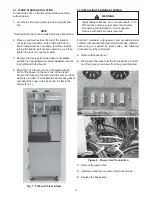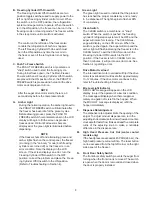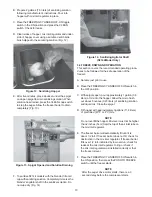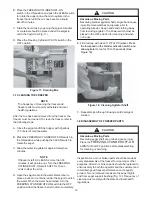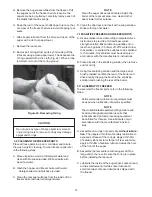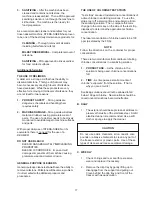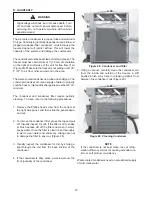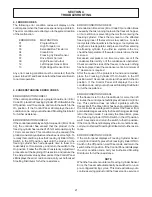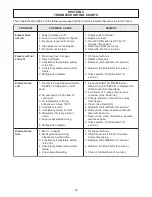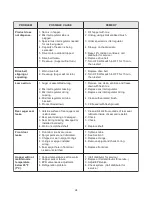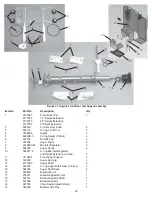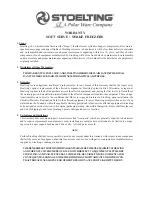
18
D. QUARTERLY
WARNING
High voltage will shock, burn or cause death. Turn
off and lock out main power disconnect before
servicing. Do not operate machine with cabinet
panels removed.
The air-cooled condenser is a copper tube and aluminum
fin type. Condensing is totally dependent upon airflow. A
plugged condenser filter, condenser, or restrictions in the
louvered panel will restrict airflow. This will lower the
capacity of the system and damage the compressor.
The condenser must be kept clean of dirt and grease. The
freezer must have a minimum of 3” (7.5 cm) of ventilation
on the right and left sides of the unit for free flow of air
(Figure 29). Make sure the freezer is not pulling over 100°
F (37° C) air from other equipment in the area.
The water-cooled condenser is a tube and shell type. The
condenser needs a cool, clean supply of water to properly
cool the freezer, inlet and discharge lines must be 3/8” I.D.
minimum.
The condenser and condenser filter require periodic
cleaning. To clean, refer to the following procedures.
1. Remove the Phillips head screw from the bottom of
the right side panel, and then slide the panels down
and out.
2. To remove the condenser filter, grasp the top and pull
off. Visually inspect for dirt. If the filter is dirty, shake
or brush excess dirt off the filter and wash in warm,
soapy water. Once the filter is clean rinse thoroughly
in warm, clear water and shake dry, taking care not
to damage the filter in any way (Figure 28).
3. Visually inspect the condenser for dirt by shining a
light through the coil from the back (inside) of the
condenser.
4. If the condenser is dirty, place a wet towel over the
front (outside) of the condenser.
5. Using a vacuum, carefully clean the condenser coil
from the inside and outside of the freezer. A stiff
bristled brush may help in releasing debris from
between the condenser coils (Figure 29).
NOTE
If the condenser is not kept clean, loss of refrig-
eration efficiency will result; causing extended run
time or soft product consistency.
Water-cooled condensers need an unrestricted supply
of cold, clean water.
Figure 28. Condenser and Filter
Figure 29. Cleaning Condenser


